Готовый план урока, который подойдет для обучения как на уроке в школе, так и на онлайн-уроке.
Спорт становится модным трендом. ПП-рецепты, воркауты, ЗОЖ вошли в жизнь подростков. Давайте обсудим с учениками тему «Спорт», а также отработаем грамматическую конструкцию used to + infinitive.
Цель урока: развивать речевые умения и навыки учащихся по теме «Sport».
Задачи:
- Осваивать лексику по теме «Sport».
- Совершенствовать навыки устной речи по теме.
- Отрабатывать грамматическую конструкцию used to + infinitive.
План урока:
1. Warm-up
Учитель показывает фото с известными спортсменами и задает вопросы, привлекая внимание к проблеме:
- Who are these people? What are they famous for? Do you know famous football players, boxers, figure skaters, etc.?
- What sports have they achieved results in?
- Is sport important in our everyday life? Why? What sport are you interested in? What sport would you like to try?
Вы можете предложить ряд картинок с разными видами спорта.
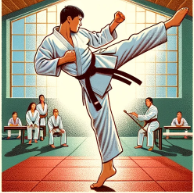
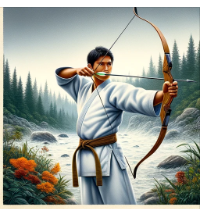
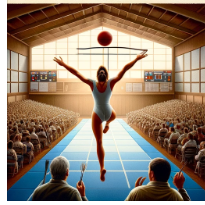
Дальше можно попросить ученика обратить внимание на слова:
- karate [kəˈrɑːtɪ]
- archery [ˈɑːtʃərɪ]
- gymnastics [dʒɪmˈnæstɪks]
- judo [ˈdʒuːdəʊ]
Произнесите и предложите ребят их повторить.
2. Lead-in
Обсудите с учениками вопросы:
- What age is the best time to start doing sport?
- Would you like to become a professional sportsman?
Let’s read some posts. Do you agree with them?
- Kids nowadays are too lazy. They’re on their phones.
- All sportsmen are rich and famous.
- Sports help bring up children and make them ambitious.
- Sport can be dangerous. Professional sportsmen get a lot of traumas.
Рекомендуем больше материалов по теме урока:
3. Vocabulary practice (Part 1)
Обратите внимание учеников на новые слова: место, где занимаются спортом; необходимое оборудование.
A. Match the types of sports with the places where people do them:
| golf | a ring |
| football, cricket, hockey | a course |
| ice skating | a court |
| tennis, basketball | a rink |
| boxing | a pitch |
B. Study the definitions and match them with the correct words:
| contestant | a person, team, or company that is competing against others |
| player | a person that you are playing or fighting against in a game |
| opponent | a person who is watching an event |
| team | someone who competes in a contest |
| a competitor | someone who plays a sport or game |
| a spectator | a group of people who play a sport or game together against another group of players |
C. What sport do you need this equipment for:
- You need it to play hockey. —
- You need it to dive or swim. —
- You need it for boxing. —
- You need it to play badminton. —
- You need it to play tennis. —
Больше планов уроков в статьях:
4. Vocabulary practice (Part 2)
Лексика на тему спорта часто заходит тяжело. Дайте студентам больше контекста, картинок, упражнений на выбор вариантов, чтобы словосочетания быстрее запомнились.
A. Choose the correct option:
- You score goals/points in tennis.
- You play football on a court/pitch.
- You play ice hockey with a racquet/stick.
- You play tennis with a shuttlecock/ball.
- You throw/kick a ball in volleyball.
- You throw a ball over a fence/net in volleyball.
B. Complete with correct words:
- Look! The player _____ the ball.
- The contest is going to start because _____ are in the swimming pool.
- Both _____ are on the football _____. The goalkeeper _____ the ball.
- If you want to play tennis you need _____, but if you want to play badminton, get a _____.
- They are on a boxing _____. They are _____ because we see that they are opposite each other. They are wearing boxing _____.
C. Translate the sentences using the following verbs:
- Игрок передает мяч, но противник бьет по нему и забивает гол.
- Участники соревнований плывут в бассейне.
- Две команды играют в футбол на футбольном поле. Игрок бьет по мячу, но вратарь ловит его.
- Люди играют в теннис на теннисном корте. Один из игроков отбивает мяч ракеткой.
- Мужчины на боксерском ринге. Они в боксерских перчатках. Они — противники.
- Девушки играют в волейбол. Это — командная игра. Они кидают мяч через сетку.
5. Revision of Grammar
Напомните ученикам, когда используется конструкцию used to + infinitive.
Used to + infinitive is used to talk about:
- Present habits.
- Past habits.
- Future habits.
Обсудите, это повторяющееся действие или разовое, показывает ли оно контраст с настоящим. Приведите примеры.
A. Compare:
- I used to spend every summer in the village.
- I spent last summer in Spain.
- I used to be a meat eater and now I am a vegetarian.
- We used to travel a lot before the pandemic but now we can’t.
B. Complete each sentence pair with the right version of the verb:
1. When I _____ a child, I _____ afraid of breaking a leg or an arm while skating. Now I am a professional couch.
2. Last summer I _____ a racquet to take up playing tennis. In my childhood it was so expensive that we _____ any sport equipment.
3. This famous sportsman _____ fit at school and his classmates _____ at him. Some years ago he _____ a world record and became famous.
4. This boxer _____ to earn a lot of money but after that crime nobody _____ him.
5. This skater _____ a world champion but after trauma his career _____ over.
C. Find mistakes:
- When I was a child, I used to love sport.
- This sportsman did not used to get traumas.
- She used to loving athletics.
- Did you used to hate PE at school?
- He used to train a lot to achieve this result.
D. Complete the text with the correct forms of used to + infinitive
This is Kira when she was 7. She (to be) a very serious child. She (not / to play) in the yard on the playground. She wanted to be a gymnastics champion, so every day she (to have) practices.
She (to spend) all her free time in the gym. Kira (not / to eat) sweets or ice cream, but she (to like) fruit a lot, especially bananas. She (to be) sporty and fit. One day she got trauma at her competitions so she could not continue to train professionally. Now she is an accountant. Her career is not connected with sport. She is a happy wife and mother.
6. Speaking practice
Уделите время разговорной практике.
A. Decide which of the following are advantages and which are disadvantages of professional sports. Explain why:
| Advantages | Disadvantages |
- presents
- becoming a brand ambassador
- being rich
- being famous
- public criticism
- early retirement
- a lot of pressure
- pride of achievements
- injury risks
B. Speak about a sportsperson you like:
- Did he/she use to be fit in childhood?
- Did he/she practice regularly?
- What did they use to do in their free time?
- What results did this person achieve?
C. Let’s discuss:
- Is the career of a sportsman short?
- What can ex-sportsmen do after their careers are over?
- Do you know sportsmen who used to be top but now they are not?
- Can you start a sports career at any age?
- Is professional sport healthy?
- Is it easy money?
7. Sum up
Обсудите, какие фразы запомнились, спросите определения некоторых слов.
- Do you remember where people play football? Explain who is an opponent or contestant.
Now I can:
- Use sport words in discussion about sport activities.
- Talk about childhood and habits.
Используйте предложенный план, чтобы сэкономить время на подготовку к уроку!












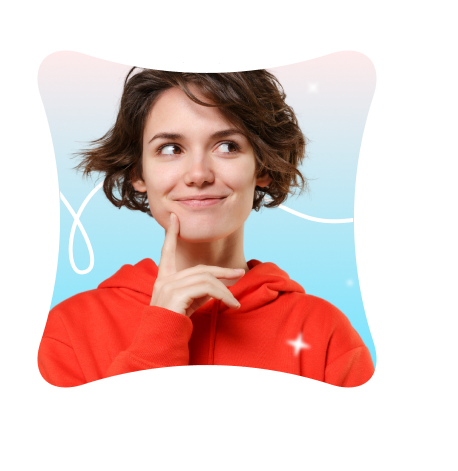





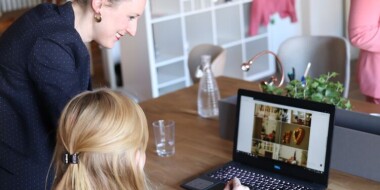
 Татьяна Тюменцева
Татьяна Тюменцева 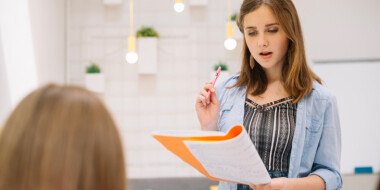
 Марина Долгачева
Марина Долгачева 
 Skyteach
Skyteach 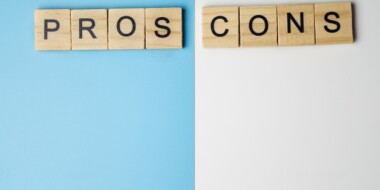
 Armenuhi Seghbosyan
Armenuhi Seghbosyan
Конструкции used to и to be (get) used to две разные конструкции, требующие инфинитива и ing формы соответственно. У Вас в целях и задании указана одна конструкция, а отрабатывается другая.
Оксана, спасибо за вашу внимательность! Поправили текст.